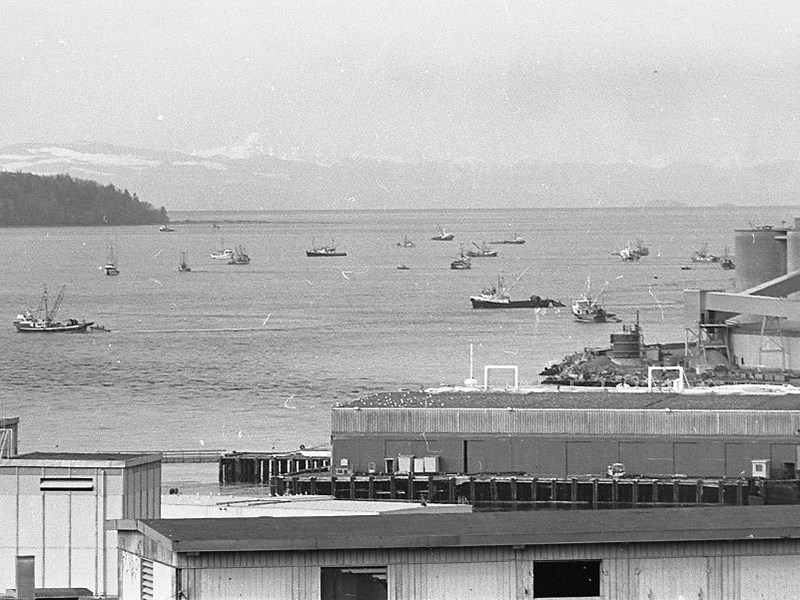Tla’amin Nation has officially opposed the possibility of a commercial herring roe fishery being opened in Area 15, the waters around Tla’amin Nation and Powell River.
Tla’amin passed a resolution at its Wednesday, March 2, meeting to send a strong message to Fisheries and Oceans Canada (DFO) that it would oppose efforts if such a commercial opening happened on its traditional territory.
“We haven’t been able to exercise our right or practice our traditions of herring roe gathering and drying because the herring haven’t been around for 30 years,” said Clint Williams, Tla’amin chief councillor. “We understand and appreciate that people need to make a living, but sustainability needs to be a part of that discussion.”
Williams said he is concerned that DFO is putting a commercial opening as a priority before conservation and providing his people with a food-fishery opening.
If the opening happens, it will be right in the heart of the band’s traditional fishing territory, an area negotiated as part of Tla’amin’s final agreement with the federal government.
Tla’amin’s resolution states that “if the decision of DFO is to proceed with the commercial herring fishery, Tla’amin Nation will take steps to restrain the mismanagement of the fishery.”
According to a DFO spokesperson, the department has received Tla’amin council’s resolution. Tla’amin representatives and DFO officials met Monday, March 7 to discuss concerns with a potential opening.
DFO has identified over 6,000 tons of herring in the waters in front of Powell River and Tla’amin in its most recent assessment. The department’s annual fisheries-management plan, developed through consultation with first nations, commercial harvesters and other stakeholders in advance of the upcoming herring season, supports a commercial harvest in the Strait of Georgia, said Michelle Rainer, DFO communications advisor.
“Openings, including any potential openings in Area 15, depend on a number of factors, including the distribution of herring stocks and spawn, as well as in-season discussions and communication with first nations and industry,” said Rainer.
DFO’s primary management objectives for Pacific herring are to conserve and protect stocks, said Rainer. “After the science-based conservation priority is met, DFO must balance a number of considerations in management of the fishery,” she said. “These include indigenous rights and economic opportunities, as well as economic opportunities for commercial harvesters.”
The seine opening near Denman Island wrapped up over the weekend after meeting its 8,400-tonne quota. A gill net opening has begun with an 11,000-tonne quota.
At the meeting, Williams informed DFO that Tla’amin Nation would oppose any effort to allow gill netters to fish in Area 15, he said.
In the mid-1980s, DFO had a commercial herring roe opening that depleted the stock so severely that close to 30 years later Powell River residents were surprised to see the milky white waters return to area beaches.
“Before it would be solid white out here for a week,” said Williams. “It was bountiful then; that one opening just devastated it. The herring are resilient enough that they keep trying to come back, but it’s only in the last few years we have been getting some patchy spawns, nothing like the traditional spawns we were used to.”
DFO ran two test boats through Area 15 last week collecting data on fish-stock levels, but did not identify enough fish for a commercial opening. And while an opening may not occur this year, Williams said that he is equally concerned about next year.
Tla’amin is one of several BC first nations who dispute DFO’s stock analysis, saying it is much smaller than claimed. Heiltsuk on the central coast, the Haida on Haida Gwaii and the Nuu-chah-nulth on Vancouver Island’s west coast have all expressed opposition to herring fisheries in their areas in the past few years.
In recent years, Heiltsuk blockaded the commercial-herring fleet and occupied the DFO’s main office, Haida worked out an agreement to keep Haida Gwaii closed and Nuu-chah-nulth failed in an attempt to obtain a court order to stop the fishery.



.jpg;w=120;h=80;mode=crop)